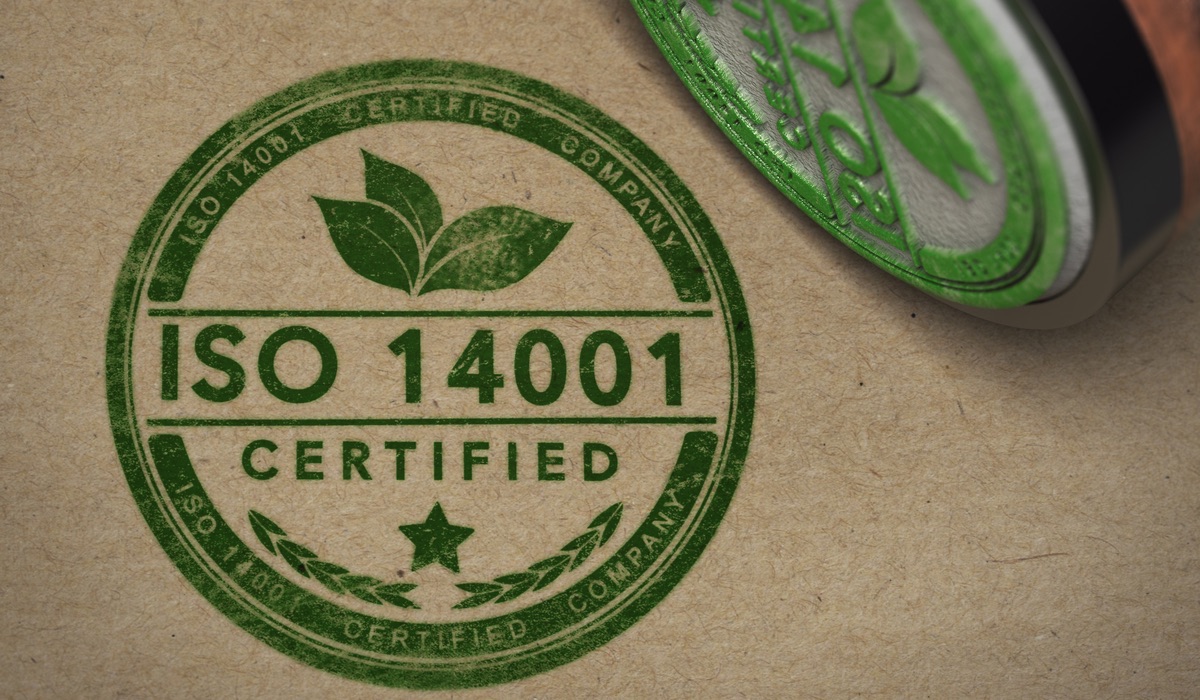Many retail brands today are littered with non-compliance, human rights and environmental violations. These organisations find themselves at a loss on how to handle this kind of supply chain complexity risk.
So, how can your brand prevent all of this?
Factory quality audits.
These quality audits aim to identify, eliminate and reduce supply chain risks for your retail brand. They also offer continuous improvement strategies to allow for constant growth, awareness and a strategic competitive position in the marketplace.
In this blog post, we
explore the different kinds of quality audits that third-party quality providers can offer you, so let’s dive into what each audit can provide you with and what the benefits will be for your brand.
Technical Audit
Let’s begin by defining what a technical audit of a factory is;
This is the process of evaluating and assessing your factory’s technical capabilities; whether or not they have a quality manual with all its quality systems defined from organizational structure to assessing whether or not a factory has any internal audit and inspection procedures. This audit will also assess the factory’s layout and whether or not there is scheduled regular maintenance and calibration of machinery.
This audit is typically based on the guidelines of ISO 9001: 2015, which is an internationally recognised standard to ensure an efficient quality management system (QMS) of your chosen factory.
The latest update has meant that the standard is more performance focused, and this is done by merging a process-based approach with risk-based thinking and adopting the Plan-Do-Check-Act cycle.

According to the guidelines as laid out by ISO 9001:2015, they are roughly categorized into eight sections; five of which are mandatory for the QMS of your factory;
- Requirements for a quality management system
- Management responsibility
- Resource Management
- Product Realization
- Measurement, analysis, and improvement of your QMS
Clauses one to three are not requirements, but are informative about the scope of this standard references to help understand the standard better, and terms and definitions that you may need to aid in the adoption of this QMS.
What are the objectives of a technical audit?
The objectives of hiring a third-party auditor to assess the quality management systems of your factory would be this;
- To assess whether there is an effective and efficient QMS of the factory.
- To assess whether or not this factory is able to meet your production requirements.
- This audit will assess the potential risks you may be aligning yourself with.
Social Audit
The SA8000 was established by the Social Accountability International in 1997. Over time this standard has become a reliable framework that many retail brands and organisations adopt to eliminate human rights violations from their supply chains.
Looking back at the
sweatshop claims against Mattel in 2011 for its use of child and forced labour, not to mention illegal amounts of overtime that were agreed to under the table, these horrific situation still need to continuously be eliminated from today’s retail supply chains.

The
SA8000 framework can measure the social performance of an organisation in eight different areas; this is rooted by the management system element that can drive continuous improvement in all areas.
This standard is valued for its meticulous approach to achieving certain levels of social compliance.
The 9 SA8000 social compliance requirements are:
- Child labour – No children younger than 15 years of age may be employed by any factory, as we can tell in the case of the above factory, this was not the case.
- Forced labour – No person may be employed by a factory if they haven’t offered to do so voluntarily.
- Health and safety – A safe and healthy workplace environment must be provided by the factory, who should also prevent any potential health and safety incidents and work related injury or illness from occurring. You would need to ensure that there is sufficient personal protective equipment (PPE) within hard-labouring factories.
- Freedom of association and collective bargaining – All staff have the right to form, join and organize trade unions and to bargain collectively on their behalf.
- Discrimination – A factory is prohibited from engaging in discrimination in hiring, remuneration, access to training, promotion, termination or retirement.
- Disciplinary practices – A factory is prohibited from engaging in or tolerating the use of corporal punishment, mental or physical coercion or verbal abuse of employees.
- Working hours – A factory must comply with applicable laws, collective bargaining agreements and industry standards on working hours, breaks and public holidays.
- Remuneration – The right of staff to a living wage must be respected by the factory.
- Management systems – Compliance must be reviewed and implemented to the SA8000 standard through developed policies and procedures.
If child labour is found within your supply chain, it results in an immediate audit failure! You need to ensure that your supplier complies with the requirements of SA8000 so that you can eliminate potential areas of risk that may be present in your supply chain.
Once you receive your audit report, based on the findings, your supplier will have time to rectify any mishappenings, and this will then usually result in unannounced visits to assess whether any improvements have taken place.
Key Benefits of a social compliance audit for your retail brand
- Compliance according to the SA8000 framework will prove that your brand is committed to social accountability; from treating your employees fairly to ensuring compliance with minimum wage requirements.
- It will by nature continuously improve the efficiency of your supply chain.
- If your organization aims to operate internationally, this standard will stand you in good stead for any international tender.
- This standard will ensure that you are globally compliant and that you reduce and manage risks accordingly.
- This standard will also provide brand protection for your organization.
Environmental Audit
An environmental audit will assess whether or not your factory complies with environmental regulations; this will often be based on the
ISO 14001: 2015 standards which are an internationally recognised family of standards.
I want to go back to the above factory that was producing toys for Mattel; in the undercover investigation it was found that hazardous chemical products were used in the production process, but factory workers were told to hide them when auditors came in.

There are many concerns with regards to a situation as the above 1. The chemical usage in the toys would likely not have met international regulation. 2. Hiding violations from an auditor only aids non-compliance and illegal production processes. 3. How are these chemicals affecting factory workers? How are they stored? How are they disposed of?
The environmental audit procedure seeks to uncover the above issues, with the ultimate goal of eliminating those kinds of violations and ensuring a clean and well-managed supply chain.
An environmental audit such as ISO 14001:2015 will assess the following;
- The legal requirements according to the substances that are being used which would along with risk assessment document.
- An audit would assess whether the factory has an existing Environmental Management System (EMS) in place.
- An audit would assess the solid and hazardous waste situation of the factory and whether or not they have an appropriate procedure in place for the disposal of waste.
- An environmental audit would assess waste water disposal, how and where you are disposing this waste water, this is often paired with waste water testing to know what kinds of chemicals are present that could potentially be damaging to nearby water canals.
- An audit will also assess the CO2 emissions of your supplier’s factory.
- An audit will assess the amount of energy and water that your supplier’s factory uses.
See the checklist we created on the types of questions an auditor may ask when visiting a factory. This would be coupled with the observation skills that a professional auditor would possess.
**TIP – The above audits assess your factory’s current operating procedures. It must be said that it is not uncommon to find a factory that complies with everything we have mentioned up until now. The key is to understand that these audits aim to highlight any major risks, but that upon receiving your audit report you will also receive continuous improvement suggestions, to aid your factory in achieving compliance and an excellent social and environmental rating.
So you may be thinking, that’s great I know what they will assess, but what are the felt benefits of an Environmental Audit?
Good question,
let me tell you why you need an Environmental Audit;
- It ensures compliance with international regulation.
- It encourages better environmental performance of suppliers.
- It reduces environmental impact.
- It reduces costs through a lower environmental impact.
- It provides a strategic competitive advantage for your brand.
So I pose the question to you –
are you ready for an environmental audit?
Conclusion
Retailers today often only consider one or two of the above quality audits, but as consumer behaviour has shifted, you may want to consider being certified according to all three international standards. This would ensure that your organization achieves a strong competitive position in the marketplace.
So let’s take a quick re-look at the benefits these can have for your brand;
- These audits will ensure compliance to international regulation
- These audits will provide a continuous improvement strategy for your supplier.
- These audits will ensure a well organized quality management system for your supplier.
- These audits will reduce your costs.
- These audits will strategically position you in the marketplace.
The insights of the above quality audits should provide you with enough information to decide on how you should manage specific supply chain risks.
These audits aim to eliminate many of the common supply chain violations found and ensure the optimisation of your quality systems.
dive into our visual guide to show you why your retail brand needs environmental auditing today!
 According to the guidelines as laid out by ISO 9001:2015, they are roughly categorized into eight sections; five of which are mandatory for the QMS of your factory;
According to the guidelines as laid out by ISO 9001:2015, they are roughly categorized into eight sections; five of which are mandatory for the QMS of your factory;
 The SA8000 framework can measure the social performance of an organisation in eight different areas; this is rooted by the management system element that can drive continuous improvement in all areas.
This standard is valued for its meticulous approach to achieving certain levels of social compliance.
The 9 SA8000 social compliance requirements are:
The SA8000 framework can measure the social performance of an organisation in eight different areas; this is rooted by the management system element that can drive continuous improvement in all areas.
This standard is valued for its meticulous approach to achieving certain levels of social compliance.
The 9 SA8000 social compliance requirements are:
 There are many concerns with regards to a situation as the above 1. The chemical usage in the toys would likely not have met international regulation. 2. Hiding violations from an auditor only aids non-compliance and illegal production processes. 3. How are these chemicals affecting factory workers? How are they stored? How are they disposed of?
The environmental audit procedure seeks to uncover the above issues, with the ultimate goal of eliminating those kinds of violations and ensuring a clean and well-managed supply chain.
An environmental audit such as ISO 14001:2015 will assess the following;
There are many concerns with regards to a situation as the above 1. The chemical usage in the toys would likely not have met international regulation. 2. Hiding violations from an auditor only aids non-compliance and illegal production processes. 3. How are these chemicals affecting factory workers? How are they stored? How are they disposed of?
The environmental audit procedure seeks to uncover the above issues, with the ultimate goal of eliminating those kinds of violations and ensuring a clean and well-managed supply chain.
An environmental audit such as ISO 14001:2015 will assess the following;
